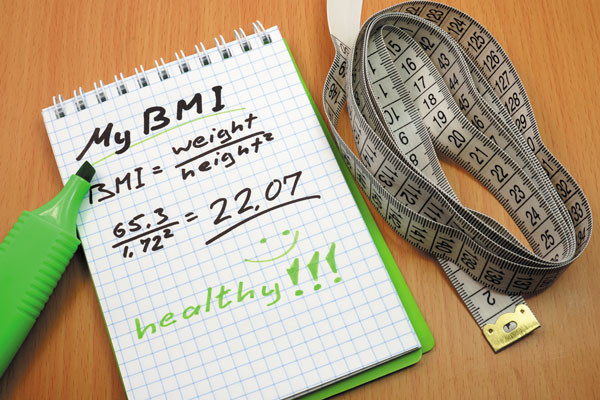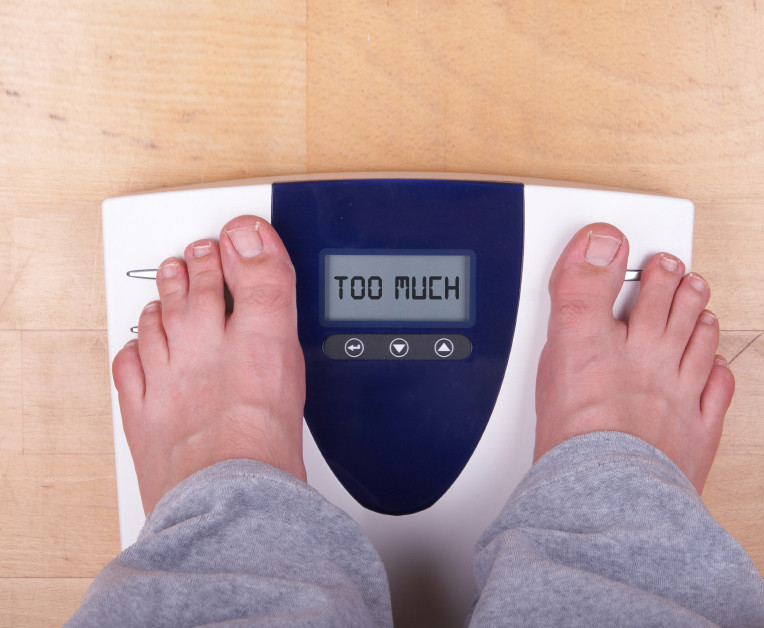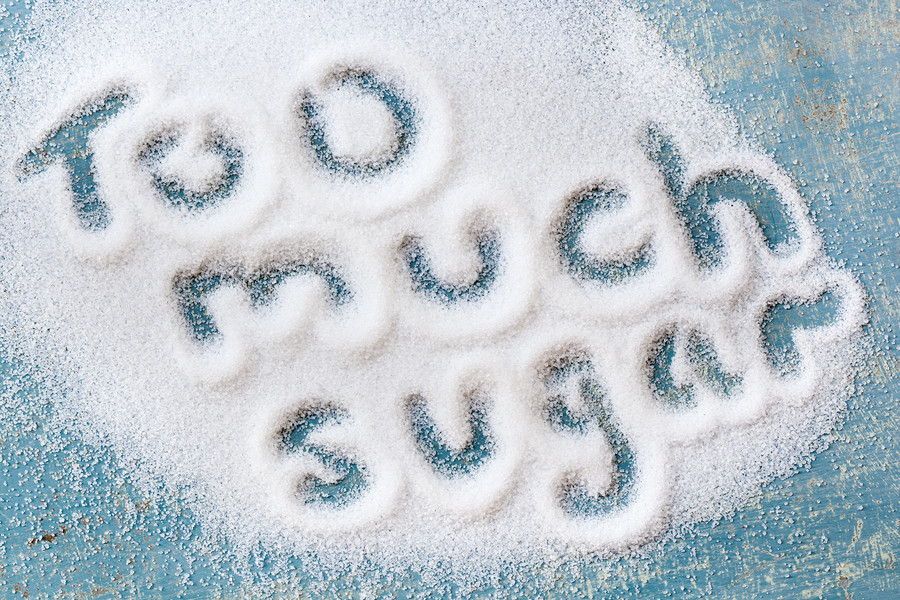
Trying to lose weight? Be careful not to lose muscle

Is your skin problem actually an autoimmune condition?

People with diabetes face higher risk of hearing loss

Antibiotic-free fixes for recurrent UTIs

Musculoskeletal syndrome of menopause: When menopause makes you ache all over

When can older women stop getting mammograms?

To lose weight, especially harmful belly fat, combine diet and exercise

Can men hold off on treating recurring prostate cancer?

The 7 types of rest and why we need them all

What are the early warning signs of cervical cancer?
Diet & Weight Loss Archive
Articles
Weight-loss surgery: Moving into new dimensions?
Bariatric surgery can dramatically improve type 2 diabetes and other risks for heart disease.
The latest statistics on obesity suggest that this disease remains a huge problem in the United States: nearly one in three American adults meet the criteria for obesity. What's more, about one in 10 women and one in 20 men are considered extremely obese (see "Obesity in the extreme").
People with extreme obesity face a high risk of cardiovascular disease and myriad other health problems, as well as a shortened life span. Most have struggled with excess weight since childhood or early adulthood, and many have undergone multiple, frustrating attempts to shed pounds. For some, weight-loss surgery (also known as bariatric surgery) may be the best—perhaps only—option for lasting weight loss.
Should I know my percentage of body fat?
Body fat percentage provides valuable information about your overall risk for diseases like heart disease and diabetes, but determining your body mass index and measuring your waist size offer easy the best tools for estimating total body fat.
Cutting calories offers benefits for normal and overweight adults
Reducing daily calorie intake by 25% may improve health-related quality of life even in people who are not overweight, according to a new study. After two years following a specific diet plan, subjects lost an average of 16.7 pounds, compared with less than a pound in control subjects. They also had better mood, less tension, greater general health, higher sexual drive, and better quality of sleep.
3 trends worth tapping into
Activity trackers, farmers' markets, and mindfulness aren't just passing fancies. They can help you develop beneficial health habits.
Image: julia514/iStock
The word "trendy" has come to refer to a fad or fashion that may have little lasting value, so it can be a turn-off, especially when applied to health practices. But trends can also have lasting health benefits—for example, the trends toward making public places smoke-free or adding calorie counts to fast-food menus. There is increasing evidence that the three trends below fall into the "beneficial" category.
1. Wearing activity trackers
2. Shopping at farmers' markets
In the last 30 years, farmers' markets have moved from the sides of rural roads to the centers of major cities and everywhere in between. Although it may be coincidental, farmers' markets are tailor-made for people who are serious about following the 2015–2020 Dietary Guidelines for Americans, which advise a gradual shift to a plant-based diet centered around vegetables, fruits, and whole grains. In one recent study conducted by researchers at Harvard T.H. Chan School of Public Health, when people began to shop at inner-city farmers' markets, they also consumed less sugary soda and more vegetables than they had previously. Farmers' markets offer several other advantages over supermarkets:
Freshness. Just-picked produce is at its peak in flavor and nutrition.
Variety. You may find some fruits or vegetables you haven't seen before or new versions of old standards.
Information. Because the people who sell the produce are likely to have had a hand in growing it, they should be able to tell you the kind of farming methods used and offer suggestions on preparing the food.
Samples. If you're wondering if the cherries are sweet or tart or if the apples are crisp, ask for a sample. Most vendors are happy to comply.
Sustainability. Eating locally or regionally grown produce means less energy is expended bringing it to your table. And supporting regional agriculture is good for your community.
You can find a farmers' market near you by going to the U.S. Department of Agriculture website using the link at www.health.harvard.edu/farmers.
3. Practicing mindfulness
How much weight loss is cause for concern?
It is normal to lose some weight as a person ages. In fact, an estimated 10% to 20% of men older than age 65 lose 5% or more of their body weight over the rest of their lifetime. However, losing 5% of total weight in one year or 10% over two years warrants some medical testing.
Is body mass index (BMI) still the best measure of body fat?
Body mass index (BMI) is still the best way to assess body fat for most people.
Why am I gaining weight?
Lifestyle measures can help to minimize postmenopausal weight gain and maximize health.
The big benefits of plain water
Many Americans opt to quench their thirst with drink sodas, juices, and sports drinks instead plain water. Now, a recently published study has confirmed what researchers have been saying for a while: upping your water consumption can help you avoid excess calories and control your weight. So, next time you’re thirsty, try water instead — it’s free, refreshing, and good for you!
Sugar: Its many disguises
Excess sugar in the diet can cause a whole host of health problems, both physical and mental. If you’re concerned about cutting down on sugar, you might think you’re covered if you skip the soda and pastries. But there are plenty of hidden and added sugars lurking in all kinds of foods — even those traditionally considered “healthy.” Here, we’ve given you some tips on what to watch out for.
Why pregnant women should avoid artificially sweetened beverages
Many pregnant women turn to zero-calorie artificially sweetened beverages to help avoid weight gain. However, these beverages may actually cause weight gain—and even alter your digestion and sense of taste. Recent research suggests that pregnant women who drink diet beverages to avoid weight gain may end up with heavier babies. So, if you’re pregnant, you may want to rethink that zero-calorie soda. After all, the old adage about “eating for two” is a reminder to eat and drink in ways that keep both you and your baby healthy.

Trying to lose weight? Be careful not to lose muscle

Is your skin problem actually an autoimmune condition?

People with diabetes face higher risk of hearing loss

Antibiotic-free fixes for recurrent UTIs

Musculoskeletal syndrome of menopause: When menopause makes you ache all over

When can older women stop getting mammograms?

To lose weight, especially harmful belly fat, combine diet and exercise

Can men hold off on treating recurring prostate cancer?

The 7 types of rest and why we need them all

What are the early warning signs of cervical cancer?
Free Healthbeat Signup
Get the latest in health news delivered to your inbox!
Sign Up










